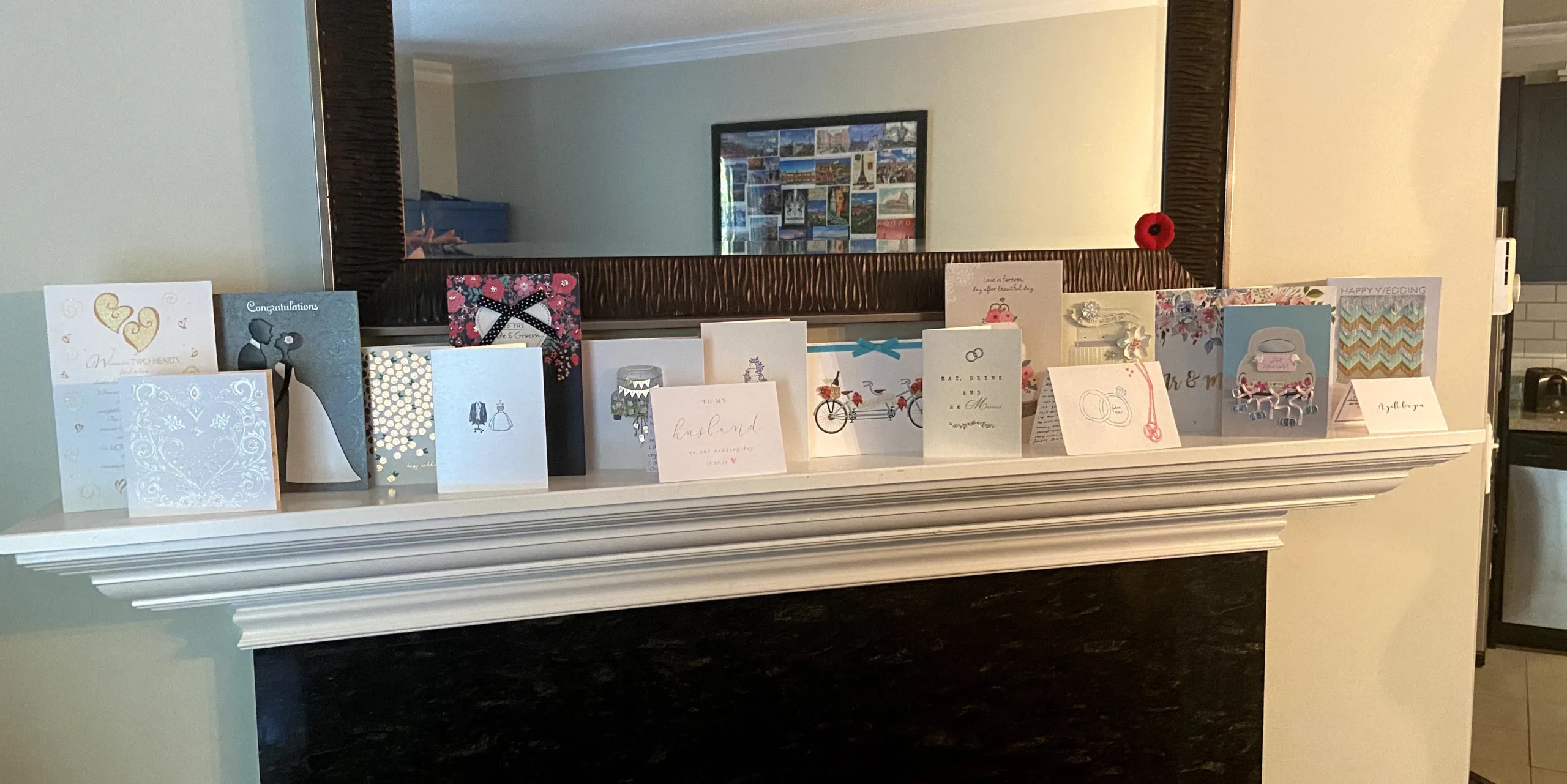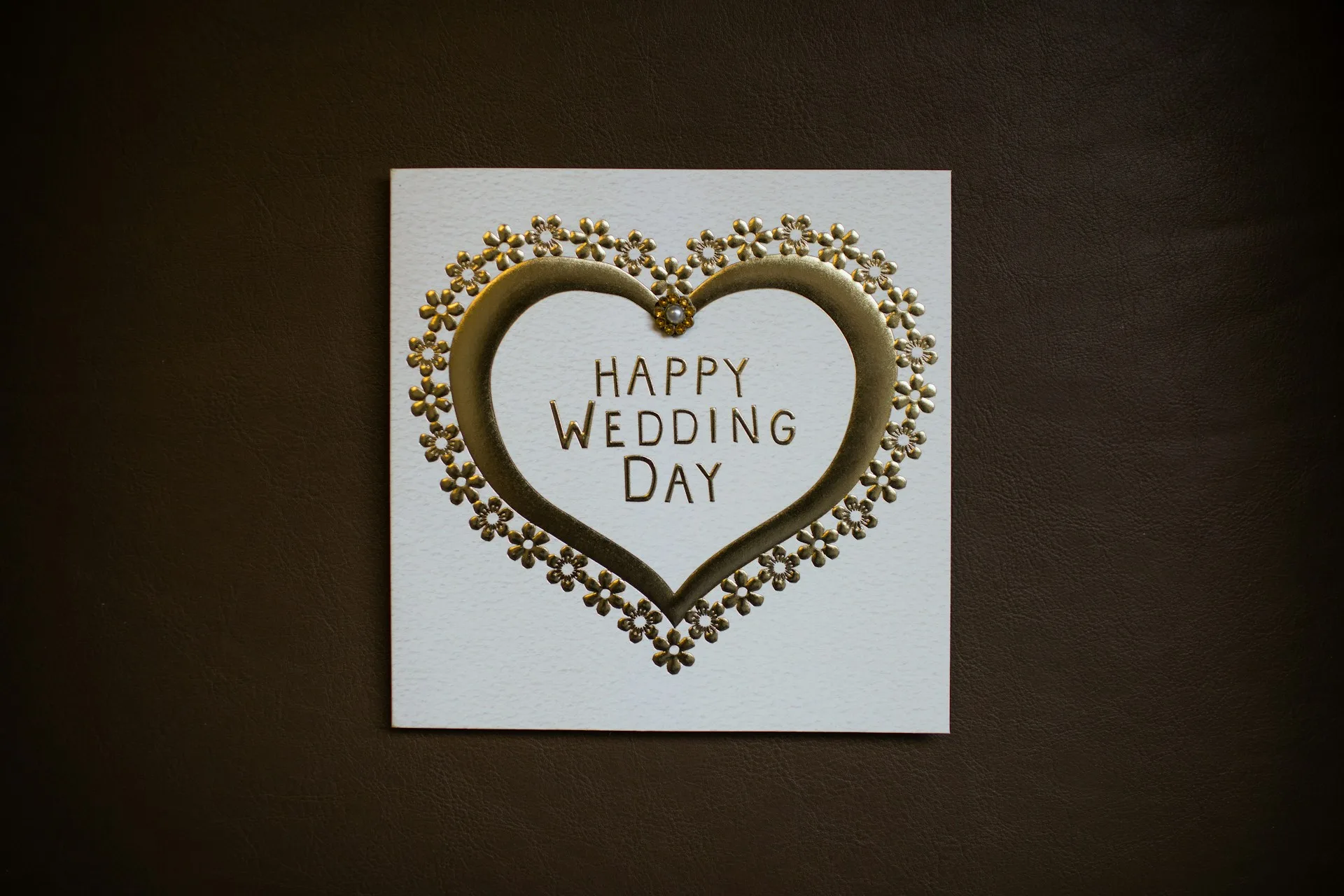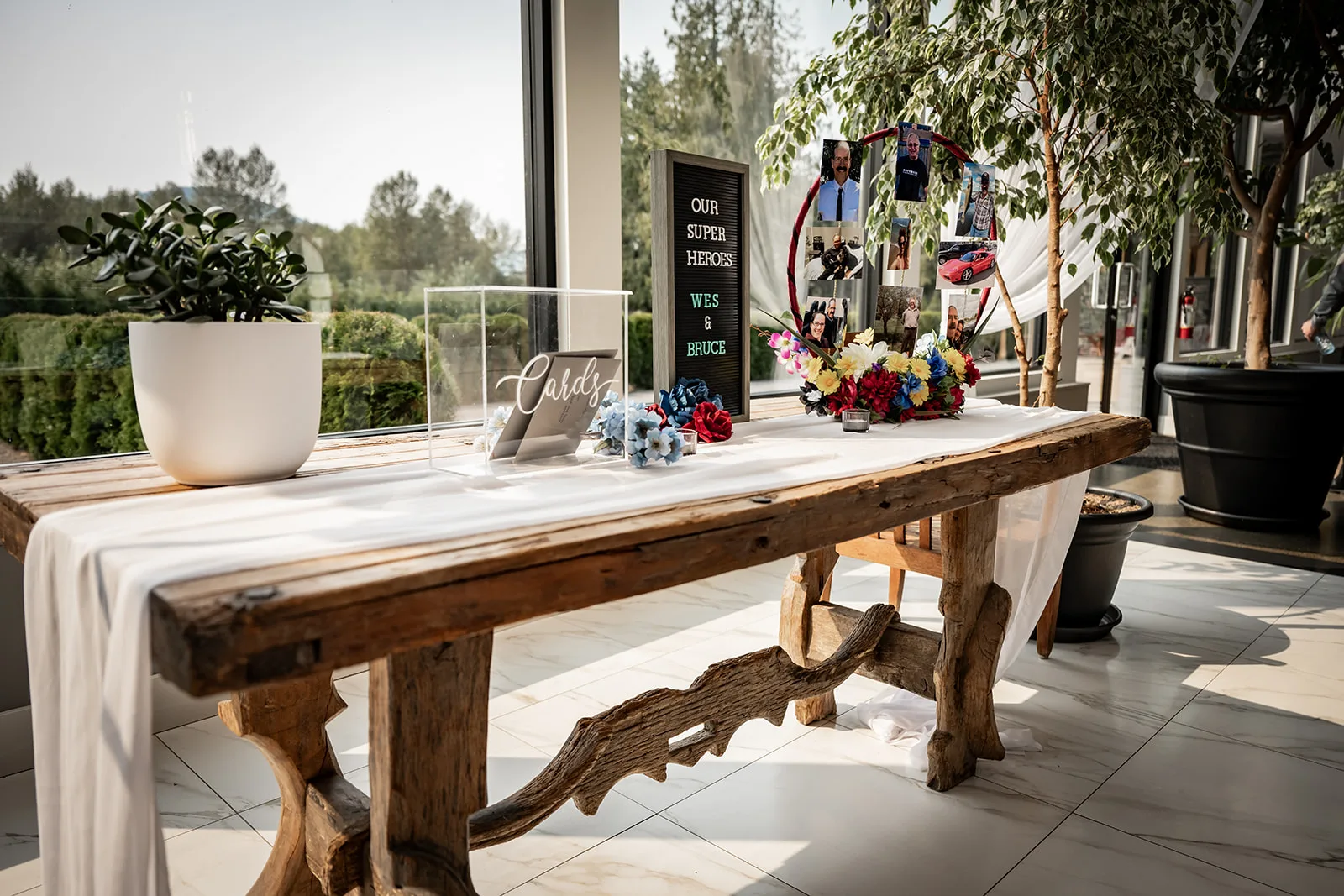So you’re attending a wedding and you know you have to write a card for the newlyweds, but you’re totally stumped! What exactly should you be writing in the message for a wedding card?
Do you need to come up with something really romantic and profound? Or can you keep it casual? How long should the card be? What should it include and when do you even give it to the couple?
Relax, we’ve got you covered. As professional wedding officiants, we know a lot about wedding words. And while we’re usually speaking them at the ceremony, we’d like to think our expertise extends to wedding cards as well.
Below we’re sharing a simple 5-step formula to write the perfect wedding card message that will be easy for you to write while still impressing the newlyweds. We’re also answering some wedding card FAQs and sharing our best tips for card writing!
First things first, do you need to write a wedding card for the couple?
Yes, it’s good form to always write a wedding card for the newlyweds. Even if you’ve already sent a gift, even if you’re not giving a gift or even if you can’t attend in person, you should always write a card.
Wedding cards are important mementos for many couples; keepsakes that they hold onto for years to come. They’re also an easy and affordable way for you to let the couple know how much they mean to you.
The only time you could skip the card is if you’re not invited to the wedding. If you haven’t been invited, a card is not expected. However, you’re welcome to still send a card/gift if you feel like it!
PS: If you’re the couple getting married, you also must send thank you cards to your guests – even if they didn’t give you a gift or a card. Thanking them for attending is the polite thing to do.
When do you give/send the wedding card?
If you’re attending the wedding, there’s usually a box, table or wishing well at the reception where you can place your card. This is usually stationed by the entrance so you can drop off your card before you head to your table.
There’s usually not a place for wedding cards at the ceremony, so you don’t need to bring your card then. You may end up misplacing it or it may get forgotten if you try to hand it to someone before/after the ceremony. Instead, hold onto your card until the reception.
If you’re not attending the wedding, you can mail your wedding card to the couple ahead of time. It’s also acceptable for your card to arrive after the wedding date. Or you have the option to send your card along with someone else who is attending in person.
Our 5 step formula for a message for a wedding card (+ examples!)
You don’t have to be a wordsmith (or professional wedding officiant) to write a nice message for a wedding card. Simply follow along with our five step formula below!
Step 1) Congratulations
We’ll start off nice and easy. Wish the newlyweds a hearty congratulations! Pro tip: If you’re not 100% what the couple is doing with their last names after the wedding, simply address the card to their first names.
Examples:
- Congratulations, Patrick & David!
- Congrats to the newlyweds!
- Congratulations on your wedding day!
- Congrats to the new Mrs & Mrs!
- Congratulations, you two!
Step 2) Well wishes
Next, add a sentence or two wishing the couple well for their wedding day and awesome marriage ahead. This is the part where you can get a little sappy.
Examples:
- We hope this day is everything you imagined it would be.
- We’re wishing you a lifetime of love and happiness.
- May the true love you share today grow stronger as you grow old together.
- Here’s to a long and happy married life! No one deserves it more than you two.
- Warmest wishes for a fun-filled future together. We can’t wait to see where life takes you!
- We wish you two the best today and always.
- Best wishes on this wonderful journey, as you build your new lives together.
Step 3) Personal anecdote (optional)
If you’re a close friend or family member of the couple, you may want to add a personalized sentence or two. Here you could share a bit of marital advice, reflect on your relationship or tell a quick story. Remember to keep your anecdote short and appropriate.
If you don’t know the couple very well or can’t think of a good personal story to share, go ahead and skip this section.
Step 4) Thank you
As we wrap up your message for a wedding card, end by thanking the couple. You can simply thank them for inviting you to the wedding or elaborate and thank them for more (if appropriate to your relationship).
Examples:
- Thank you for letting me share in this joyful day.
- Thank you for inviting us to be a part of this celebration.
- Thank you for always having my back and including me in your special day.
- Thank you for showing me what it means to have someone to count on.
- Thanks for the free booze!
Step 5) Sign off
Finally, end your card with a sign off and your name(s). Since this is a wedding card, feel free to use a sign off that’s a bit more sentimental, rather than one you might use in the workplace.
Examples:
- With love, [your name]
- All my love, [your name]
- Congrats again, [your name]
- All the best, [your name]
- Lots of love, [your name]
- Best wishes, [your name]
What do you write in the card if you’re not attending the wedding?
If you’re not able to attend the wedding in-person, we still believe you should send a card. You can follow the format above but with a few tweaks.
Simply add in a line expressing your condolences for not being able to attend and a line sharing how much you look forward to celebrating with the couple another time. There’s no need to go on and on apologizing or explaining your absence. Instead, keep things upbeat!
Examples:
- I’m sorry we won’t be able to celebrate with you today but we can’t wait to cheer you on through all the years of your marriage.
- While we can’t be with you today, we hope you can feel our love from far away.
- We look forward to celebrating with you both when we see you next.
- We really wish we could have been there today but we’re celebrating with you all in spirit.
- We’re raising a glass to you two from afar today – and getting ready to celebrate in-person when we see you again.

Advice for writing the perfect wedding card message
Before you take pen to paper, here are seven pieces of card writing advice to keep in mind!
1. Start early
We’re not saying you have to start writing your wedding card message months in advance. But it’s also not something you should leave for the morning of.
Give yourself lots of time to choose and buy (or make!) a card and write the sentiment inside. Give yourself even more time if you need to mail your card.
2. Keep it short and sweet
There’s no need to wax poetic for pages or deliver a full-length novel to the newlyweds. You can still write a beautiful and heartfelt message in just a few sentences.
At the same time, don’t make your message too short. This is an important occasion and your loved ones deserve more than just “Best wishes, [your name]” scrawled inside an otherwise blank card.
3. Keep it G-rated
Yes, you can crack a joke or two in the card but make sure you keep everything appropriate. This is not the place for foul language, embarrassing stories or anything you wouldn’t want grandma to read.
4. Address both members of the couple
Even if you’re only friends with one person, your wedding card needs to be addressed to both members of the couple. And make sure you’re spelling their names correctly too (hint: check the invite or wedding website if you’re not sure)!
5. Go easy on the marital advice
The primary purpose of a wedding card is to share well wishes with the couple, not dole out marital advice. Only include advice if it’s appropriate for you to share and it’s genuinely useful.
For example, if you’ve been happily married for 20 years and have a nugget of wisdom you’d like to pass on, go for it. Especially if you have an advice-giving relationship with the couple, such as being an older family member, this can be a really special addition to your card.
But if you’re in the middle of a bitter divorce, perpetually single or only want to include a tired, sexist cliche (like “happy wife, happy life”), go ahead and skip the marital advice section.
6. When in doubt, go formal
If you’re hesitating about what tone to take in a wedding card, opt for more formal language rather than more casual language. While wedding cards don’t need to be serious and stuffy, they also shouldn’t be full of typos and slang.
Keep your writing true to you but remember that this card could be an important keepsake. Imagine the couple reading your card on their 20th wedding anniversary – does it hold up?
7. Make it heartfelt
Our last piece of advice is to add a little sentimentality to your wedding card message. The best cards are from the heart and speak to your unique relationship with the newlyweds. Take some time to reflect on their love and what you truly want to wish them on their special day.
That’s it – happy wedding card writing!

